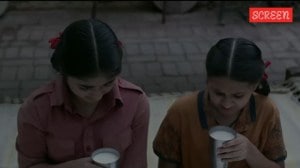Freed children scarred by zari still
The zari their nimble fingers weave, the leather they work on, winds up in malls and boutiques across Europe and the Middle East — fuel...

The zari their nimble fingers weave, the leather they work on, winds up in malls and boutiques across Europe and the Middle East — fuelling a multi-crore industry run from medieval sweatshops hidden to shining Mumbai.
But as in the past, the confidence of 42 men arrested on Wednesday was high though 446 child workers — migrants from Bihar, Uttar Pradesh and Andhra Pradesh — had been rescued from their custody in one of the biggest raids Mumbai has seen.
On the behest of a clutch of NGOs, 150 policemen, backed by paramilitary units, swept through 226 workshops in Madanpura for two hours from 9.30 am, rescuing children, whose normal work day spans 18 hours.
The police said they were determined to book the employers this time: They are usually charged under the Juvenile Justice Act, which allows them to walk out on a bail of Rs 3,000 to Rs 4,000.
‘‘I don’t want to comment on what happened in the past, but we intend to come down heavily on these people,’’ DCP Santosh Rastogi said.
This time, the employers have also been charged with unlawful forced labour under the Indian Penal Code, which is a non-bailable offence.
Wednesday’s raids, led by Rastogi, were in contrast to the failures of May 28, when the same group of NGOs had complained of inadequate police assistance.
Kishore Bhamre, of NGO Pratham that also repatriates the rescued children, explained it isn’t just poverty driving children to Mumbai. ‘‘When there are no schools, parents think it’s better for a child to work,’’ said Bhamre.
Five-year-old Tarak said: ‘‘I was brought here from Nepal by my uncle two months ago. He said Bombay is very beautiful and I will have fun. I have been working in Shirinbai chawl from 9 am to 3.30 am ever since. We get food twice a day: rice, dal and potatoes. I was paid Rs 20 every Sunday.’’ ‘‘I had nowhere to go. At least here, I was given two meals a day,’’ says 10-year-old Tabrej.
The children will go to juvenile homes until they are presented before the Child Welfare Committee.



- 01
- 02
- 03
- 04
- 05




























